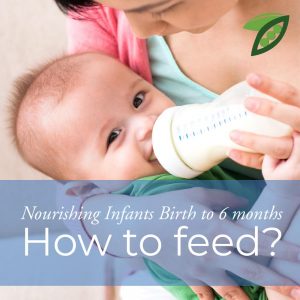Birth to 6 months is the time of fastest growth in all of childhood!
What and how we feed our infants sets the stage for their health throughout childhood and into adulthood!
What to feed
I’m sure you have heard that “Breast is Best”–It is! Breast milk can help decrease infections and help with development. It may even help prevent obesity later in life.
BUT, what if you cannot breast feed, or, in spite of your best efforts you just don’t make enough milk?
Babies can certainly grow and develop on infant formulas. These are made to be as close to breast milk as possible; the major brands all follow very strict standards for making their formulas! The best bet is a standard, cow’s milk based formula for the vast majority of bottle fed infants. A small percentage of infants need a specialized formula; talk with your pediatrician if you think your baby does not tolerate milk based formula.
You do not want to introduce ANYTHING other than breast milk or formula before 4 months of age.
- Babies’ intestines are not mature enough for foods before 4 months of age.
- If your baby was born early, wait until at least 4 months “corrected age” to introduce foods.
- Some babies are ready to start pureed solid foods at 4 months, others are not ready until closer to 6 months. I’ll talk about introducing foods in my next two posts.
How to feed
Newborn infants are just getting used to life on the outside. They need to be fed when they are hungry and allowed to stop when they are full. A newborn is likely to eat 8 to 12 times/day. This will decrease over time to about 6 times/day by 6 months of age.
Watch for your baby’s hunger cues
Early hunger cues
- Sucking motions with the mouth
- Sucking on fist, toes or anything within reach
- Opening and closing mouth
Active hunger cues
- Turning head toward your breast and trying to nurse
- Fidgeting/squirming
- Rooting on the chest of anyone carrying them
- Getting into their feeding position
Late cues
- Fussing or being agitated
- Crying and red in the face
Check out this Youtube video on newborns’ hunger cues: Newborn Hunger Cues
Whether you are breast or bottle feeding your baby, you want to watch for hunger cues. You want to start a feeding when you first see hunger cues. Once a baby is very fussy and agitated or crying hard, calm them by holding them close before you start feeding. A screaming baby has a hard time eating!
When to stop feeding
You want to allow baby to stop eating when they show signs of being full:
- Pushing away from breast or bottle
- Turning head away from breast or bottle
- Closing mouth and refusing to latch onto breast or bottle

Some babies are more difficult to feed than others
- You know your baby is getting enough if they are growing and gaining weight–they are staying on their curve on the growth chart.
- If your baby is not growing well, ask your baby’s doctor to refer you to a lactation specialist and/or to a Registered Dietitian-Nutritionist who specializes in pediatrics.
- Best to see someone when baby’s doctor first notices that growth is slowing–“An ounce of prevention is worth a pound of cure!”
- It is so much easier to help if you don’t wait until your baby has “fallen off” the growth chart!
- Best to see someone when baby’s doctor first notices that growth is slowing–“An ounce of prevention is worth a pound of cure!”
- If you are having problems nursing you baby, see a lactation specialist!
- There are many tricks to improving breast feeding! A certified lactation consultant can help you a lot!


